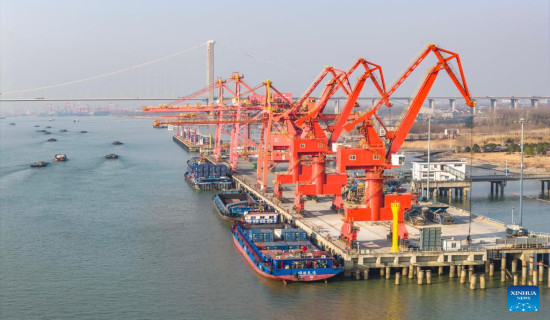- Thursday, 15 January 2026
ADB reorients its strategy to climate change, private sector development
By A Staff Reporter,Kathmandu, Sept. 7: The Asian Development Bank (ADB) has approved an ambitious new road map to guide its evolution and scale up its support on key challenges facing Asia and the Pacific, including accelerated efforts to combat climate change and expand private sector development.
ADB’s Strategy 2030 Midterm Review—an update of its corporate strategy—outlines how the bank will transform in a rapidly changing development landscape and respond to challenges that threaten its vision for a prosperous, inclusive, resilient, and sustainable region, a statement issued by the multilateral donor’s headquarters in Manila on Friday informed.
“Cascading shocks have derailed years of development progress in Asia and the Pacific. ADB is updating its vision, expanding its financial capacity, and modernising its operational approach to help its members respond to these unprecedented challenges, including the accelerating climate crisis, public health crises, and economic and fiscal vulnerability,” said ADB President Masatsugu Asakawa.
According to him, the new road map sets an unprecedented level of ambition and focus for ADB’s work and will ensure we meet the moment through bold action and transformative impact.
“In line with its mandate to fight poverty and improve lives and livelihoods, ADB will deepen its focus on five of the region’s most pressing development issues: climate action, private sector development, regional cooperation and public goods, digital transformation, and resilience and empowerment,” read the statement.
To boost the region’s response to climate change, ADB will target for climate finance to reach 50 per cent of its total annual committed financing volume by 2030. ADB said that it is committed to reaching more than US$100 billion in cumulative climate finance from 2019 to 2030.
To expand private sector development, ADB will target reaching total private sector financing of $13 billion for the year 2030, a tripling of current volumes. This will comprise both its account financing and all direct mobilisation, including a minimum of $4.5 billion in direct private capital mobilisation. In addition, ADB is targeting 40 per cent of sovereign operations contributing meaningfully to private sector development by 2030.
In September 2023, ADB approved capital management reforms that unlock $100 billion in new funding capacity over the next decade. The reforms expand the bank’s annual new commitments capacity to more than $36 billion—an increase of approximately $10 billion, or about 40 per cent.

.jpg)


-square-thumb.jpg)
-square-thumb.jpg)










